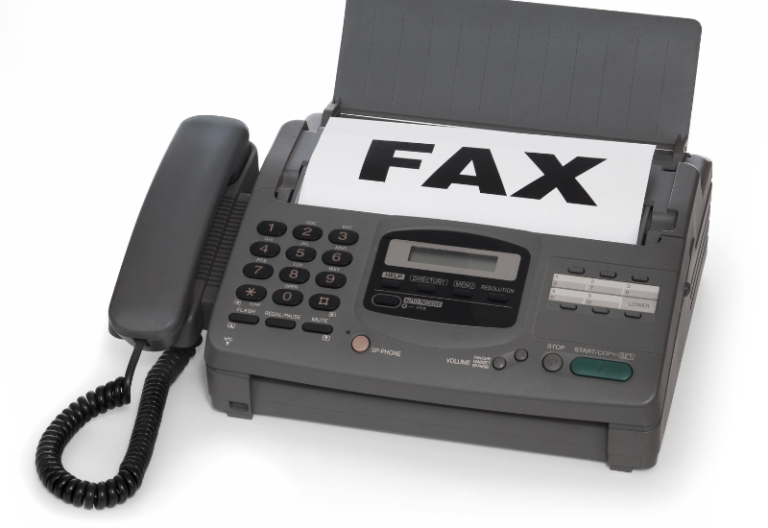The potential for machine learning in medical records management is immense. By harnessing the power of algorithms and big data, we can make incredible strides in diagnostics, treatment, and prevention.
Doctors and healthcare workers are increasingly using machine learning to improve patient care. Moreover, it can help identify patterns in medical data that would otherwise be invisible to humans. The technology can predict outcomes, diagnose diseases, and recommend treatments.
This blog post will discuss how machine learning works, its benefits to patients and doctors, challenges and limitations, and what the future holds.
Table of Contents
- What Is Machine Learning and Why Is It Important in the Medical Field?
- How Does It Work: Machine Learning in Medical Records Management?
- The Benefits of Using Machine Learning in Medical Records
- Future of Machine Learning in Medical Records
- Final Thoughts
What Is Machine Learning and Why Is It Important in the Medical Field?
Machine learning is a type of artificial intelligence that uses sophisticated algorithms to process massive amounts of data. It then makes predictions or identifies patterns in data without human input.
In the medical field, machine learning can remember whether a patient has an ailment or disease, predict which treatments the patient should receive, and determine the best possible outcome for their specific situation.
Machine learning is helpful in many areas of medicine, including medical billing management, clinical decision support system, drug development, pharmaceutical sales forecasting, medical product recommendations, and more.
The use of machine learning promises to bring data-driven improvements to all aspects of health care, from prescribing medication that is effective on similar patients in the past, determining expected hospital readmission rates for various surgical procedures, and identifying insurance fraud cases by reviewing unusual medical claims.

How Does Machine Learning Work in Medical Records Management?
The goal of machine learning in medical records management is to improve productivity and efficiency through automation. Some specific ways that it can do this include:
- Automated normalization and de-identification of patient data
- Data mining and profiling for data quality assessment
- Efficient indexing, searching, and retrieval of medical records
- Automated updates of patient’s electronic health records to reflect changes in status
The use of machine learning in medical records management could significantly increase efficiency and productivity because it can automate processes that clerks work on manually, saving both time and money. It may also enhance the accuracy of these tasks by using algorithms to interpret data, allowing human workers to focus on higher-level analysis.
When applying machine learning to medical records management, the first step involves using automated tools such as natural language processing (NLP) to identify patients’ problems, diseases, or conditions from unstructured text found in the electronic health record (EHR). Once related terms are determined, NLP also uses these relationships to expand the number of concepts in the EHR.
NLP has many applications in medical records management, ranging from automated normalization and de-identification of patient data to efficient indexing, searching, and retrieval of medical records. For example, a popular use for NLP is identifying patients’ problems, diseases, or conditions from unstructured text found in an EHR.
The type of normalization can help reduce ambiguity between different terms that refer to the same thing because it identifies related terms within large volumes of patient notes.
The Benefits of Using Machine Learning in Medical Records
Machine learning is the most powerful resource for computer scientists. With so many health care organizations around the world already beginning to adopt it, it’s just a matter of time before we see more and more organizations using this technology on their patient data files.
While there are hundreds of benefits that come with using machine learning in medical records management, here are our top four picks:
- Accuracy – the best thing about machine learning algorithms is that they can provide tremendous accuracy compared to human beings or traditional hardcoded tools. It means that the risk associated with accuracy will be drastically reduced over time once you have a process that is based on machine learning.
- Reliability – in terms of reliability, there are quite a few different ways to measure and compare the traditional tools vs. those driven by machine learning algorithms. The bottom line with this technology is that it can provide high levels of consistency and dependability compared to other more traditional methods.
- Flexibility – the flexibility offered through software driven by machine learning algorithms is unmatched. These systems will adapt as new information comes into the system and additional changes are made. This is critical for health care organizations that want to leverage their data in every way possible to improve overall outcomes over time.
- Improved outcome – Machine learning drives will also improve patient outcomes over time. It is because, after a specific time, these systems will be able to make predictions about your health care needs based on the data it has already analyzed. The other benefit here is that you can use machine learning-driven tools to avoid unnecessary hospitalizations and other costly procedures over the longer term.

Future of Machine Learning in Medical Records
Traditionally, machine learning has not been applied to medical data, and this is a common belief that the data is too sensitive and errors can cause serious problems. However, with recent advances in computational power and access to large amounts of data, companies can better utilize these techniques for use cases where there is more at stake than just “life or death.”
Our first use case will be analyzing patients’ responses to different treatments and medications at an outpatient clinic. The machine learning algorithm implemented could determine whether or not a patient has seen results from their medication by modeling data such as symptom severity over time. A physician can then use this information to decide whether or not they should try another treatment option.
If multiple physicians utilize the same system, trends may emerge between specific doctors and their success rate in treating certain conditions. These insights would allow patients to receive more targeted care based on real-world evidence rather than guesswork.
Another use case for machine learning is forecasting patient volumes in an emergency department or hospital ward. Say a hospital has found that 60% of their patient load for certain specialties comes from referrals from within 5 miles of the facility, with 50% from within 1 mile of the center. The hospital can then leverage this information to determine optimal locations for new facilities to decrease wait times and increase profits.
Final Thoughts on Machine Learning
We hope this blog has helped you shed light on machine learning in medical records management. If you’re looking for a way to improve your medical records management but don’t know where to start, machine learning might be the answer. Machine learning is an artificial intelligence technique that can learn from data and predict future occurrences.
It has been applied in many different fields, including finance, marketing, healthcare, and more recently as a tool for medical record management. It could help with everything from organizing charts to identifying patients at risk of disease outbreaks.
Now, if you’re also looking for HIPAA-compliant fax software that will help you manage your EHR and EMR for swift faxing, you can check out iFax. View our pricing plans and see which one fits your needs and budget.







